- Saturday, 20 April 2024
Fuel consumption drops, but expenditure goes up
By Laxman Kafle,Kathmandu, Feb. 5: The consumption of petroleum products has declined during the first six months of the current fiscal year, resulting in a decrease in the import of petroleum products.
According to Nepal Oil Corporation (NOC), consumption of petroleum products in the current fiscal year has fallen by up to 33 per cent compared to the last fiscal year.
The consumption of petroleum products, especially diesel, has decreased significantly in the country this fiscal year due to significant price hikes of petroleum products, slow pace of development works and improvement in electricity supply in the country, said Binitmani Upadhyay, spokesperson of Nepal Oil Corporation.
According to the statistics of the Department of Customs, about 550,902 kilolitres of diesel and 334,315 kilolitres of petrol have been imported during the first six months of the current fiscal year while in the corresponding period last year, 830,273 kiloliters of diesel and 371,820 kiloliters of petrol were imported.
The import of diesel has decreased by 33.64 per cent, and petrol by 10.08 per cent during the first six months of the current fiscal year as compared to the same period last fiscal year.
Similarly, the import of kerosene has decreased by 35 per cent and liquefied petroleum gas by 6.35 per cent during the review period.
The country has imported 247,790 tonnes of LPG during the first six months of the current fiscal year while 264,604 tonnes of LPG was imported in the same period a year ago.
Similarly, the country imported around 71,880 kilolitres of aviation fuel during the review period while 72,568 kilolitres of aviation fuel was imported in the same period last year.
Liquidity problems, halted development activities like the construction works and the increased oil prices resulted in the reduction in fuel consumption and import this fiscal year, Upadhyay said.
The increase in oil prices in the Nepali market compared to their prices in India is also the reason for the fall in fuel consumption in Nepal, he added.
The Corporation argues that when the tanker drivers started filling up oil in India as the fuel price is lower in India than in Nepal, the consumption fell in the border area.
He said that when the price of fuel in Nepal was lower than in India, the trucks entering Nepal from India used to fill up fuel tanks in Nepal, but the trend has now been reversed, he said.
The price of diesel and kerosene in Nepal is now dearer by Rs. 30 per litre and petrol by 25 per litre in Nepal than in India.
He said that improvement in the electricity supply in the recent years has also contributed to decrease in the consumption of diesel in the industrial sector.
Even though the consumption of petroleum products decreased, the expenses in fuel has gone up because of significant price hikes of fuel in the international market.
In terms of amount, expenditure for diesel import has increased by 14 per cent, petrol by 14.55 per cent, aviation fuel by 110 per cent and LPG by 3.52 per cent during the first six months of the current fiscal year as compared to the same period last year.
The country has spent Rs. 70.10 billion for the import of 550,902 kilolitres of diesel, Rs. 33.53 billion for 334,315 kilolitres of petrol, Rs. 697 million for 5324 kilolitres of kerosene and Rs. 11.24 billion for 87,885 kilolitres of aviation fuel during the review period.
Similarly, the country spent Rs. 28.20 billion for the import of 247,790 tonnes of LPG. However, the country had spent of Rs. 61.47 billion for the import of 830,273 kilolitres of diesel, Rs. 29.27 billion for 371,820 kilolitres of petrol, Rs. 5.33 billion for 72,568 kilolitres of aviation fuel and Rs. 29.23 billion for 264,604 tonnes of LPG during the first six months of the last fiscal year.
Spokesperson Upadhyay said that additional financial burden had been added to the consumers and the state despite decrease in the fuel import due to price hikes of fuel in the international market.
Due to price hikes in the international market, the price of diesel had increased to Rs. 192 per litre, petrol by Rs. 199 per litre, aviation fuel to Rs. 190 per litre and LPG to Rs. 1,800 per cylinder in the local market.
Now, diesel is trading at Rs. 172 per litre, petrol at Rs. 175 per litre, aviation fuel at Rs. 170 per litre and LPG at Rs. 1,800 per cylinder in the local market.
Upadhyay further said that it is a must to promote the use of electric vehicles and electric stoves for increasing consumption of electricity in the country to save huge amounts of money to be spent for the import of fossil fuel.
The use of electronic stoves and electric vehicles has also been increasing in the country for the last two years.



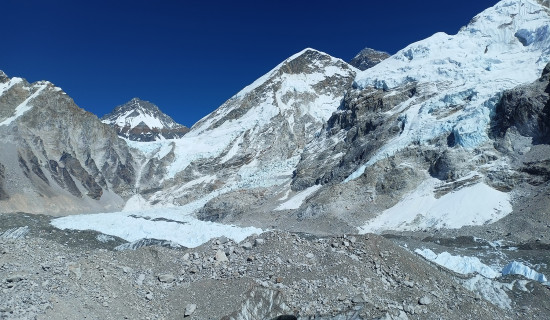
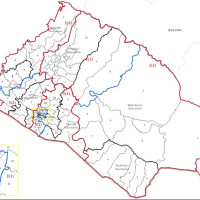
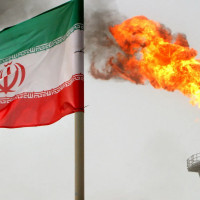
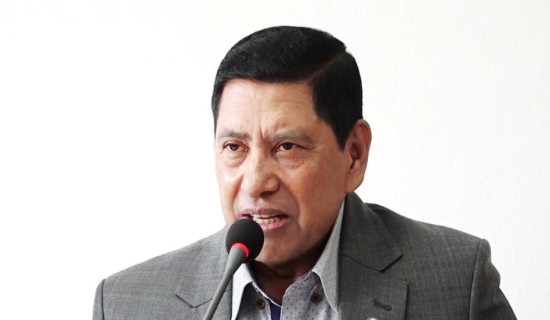
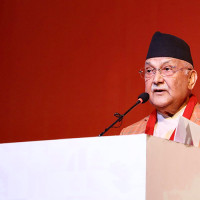
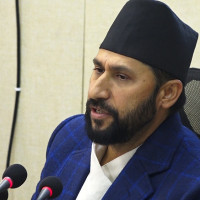
copy-original-thumb.jpg)







